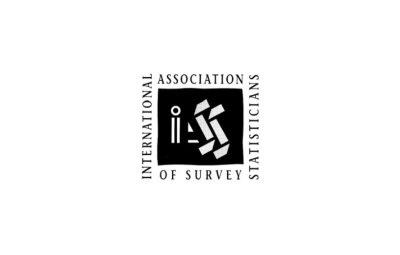Jean-Claude Milleron, Elected member of the ISI since 1983 and a former Chief Executive Officer of the French Central Statistical Office (INSEE), passed away in July 2016.
Not long before, he completed an autobiography for his close family and friends. This last text of his constitutes an invaluable source of information in which he reviews the main stages of his professional life, and, even more, fully appreciates what had motivated his lifetime commitment to public statistics and economics in various branches of civil service, both in France and internationally.
***
The professional life of Jean-Claude Milleron can be divided into three main successive stages, of about 15 years each.
The first one covers his years as a graduate student, a researcher, and a teacher. They were devoted mostly to mathematical economics and statistics, by then often merged under the Frischian name of "econometrics".
Milleron graduated from Ecole Polytechnique, a prestigious and highly selective scientific teaching institution which provides most senior managers for the French scientific public service. There, he acquired a solid background in advanced mathematics, which allowed him to enter INSEE, l'Institut National de la Statistique et des Etudes Economiques. As a central statistical office, INSEE is, directly or indirectly, in charge of managing the whole production and publication process of national statistics in France. Also, INSEE performs economic and social studies based on the various statistics it produces. This allows INSEE to cast more light on these national figures, to the benefit of both the government and the general public. And it is expected that each of these activities - production of statistics and economic/social studies - contribute to improve the quality of each other.
In 1961, having joined ENSAE, l'Ecole Nationale de la Statistique et de l'Administration Economique, a graduate school associated with INSEE, Milleron displayed a special interest in mathematical economics. This was soon noticed by Edmond Malinvaud who was influential there as one of the main professors in economics and econometrics. This is how Milleron started a teaching career, mostly in microeconomics. He followed Edmond
Malinvaud for a couple of years, when the latter created a research department within INSEE. Malinvaud and Milleron not only shared many ideas about the scope and methods of economics, but next to close similarities in their respective careers, developed a true friendship till the very end of their lives - Malinvaud died in 2015.
Thanks to Malinvaud, Milleron could spend a sabbatical year at the University of California in Berkeley University. There, in 1970-1971, under the guidance of Gerard Debreu (a friend of Malinvaud and a Nobel Prize winner in economics), Milleron worked through and published a much quoted article on the explicit introduction of public goods in general equilibrium models. This helped him to become later a fellow of the Econometric society. Back from California, in mid-1971, Milleron succeeded Malinvaud as head of ENSAE, where, for a few years, he developed an active and promising team of assistant professors.
***
During the second part of his professional career, Jean-Claude Milleron turned from theory to practice and became a high-ranking civil servant who played an important part in the back office of economic policy in France.
In 1977, Milleron was chosen by Michel Albert (then head of the CGP - Commissariat General du Plan) to manage its economic department. By that time, CGP was an original public institution in charge of realizing economic and social studies to enlighten the long term strategic choices of the government. Such studies were made in cooperation with many of the public actors involved – such as labor unions, employers unions, university professors, specialized researchers, and so on. Managing all of them efficiently demanded some
diplomatic skill...
In 1982, Milleron was appointed head of the Direction de la prévision, an important directorate of the ministry of Finances and Economic affairs. There, he and his collaborators realized for their minister (Jacques Delors, who was later President of the European Commission) numerous applied economic studies necessary to implement the economic decisions of the government. Such a job is, of course, very close to the political power.
At last, in 1987 and for 5 years, Milleron succeeded Malinvaud as chief executive officer of INSEE. He launched soon a Projet de service public, a kind of broad internal market research which mobilized the whole staff of INSEE. His main purpose was to adapt the various activities of the institution to the new needs of the French society (notably in the regional dimension), to extend its international role (especially towards East and Central
European countries in transition after the Fall of the Berlin Wall), and to take advantage of the new tools of information technology (with the diffusion of personal computers).
During this reorganization, Milleron was very careful to link most aspects of INSEE's activities to the economic theory of public goods - a topic he knew quite well. This concern was decisive to figure out which kind of statistics and economic or social studies should be produced within INSEE, and which should be left to the private sector. It also helped to define precisely how the various outputs from INSEE should be publicized - free or not, according to their characteristics and to their potential users. It was as head of INSEE that Milleron contributed to organize and welcome in Paris in 1989 the 47th session of the ISI, presided by his Canadian counterpart, Ivan Fellegi.
***
At last, during the third phase of his professional life, Jean-Claude Milleron went to United States, where he held high-level positions in international organizations concerned with world economic and social policies.
In 1992, Boutros Boutros-Ghali, the General Secretary of UN, called him to New York to reorganize DESIPA, the UN Department of Economic and Social Information and Policies Analysis. As a deputy General Secretary, Milleron had then the opportunity to realize how important it is to supplement rigorous scientific reasoning by a lot of intercultural diplomacy to which classical graduate studies offer very few guidelines...
After a brief return to Paris in 1997, Milleron was sent to Washington by the French government to be the official representative of France at the IMF (then headed by Michel Camdessus, a Frenchman to whom he became very close), as well as at the World Bank. At the same time, he was also the financial counselor at the French Embassy. Such insider positions allowed him to catch a few surprising glimpses of some top level members of the French government...
***
Having retired in 2002, Jean-Claude Milleron enjoyed a new life, most of the time in the Alps Mountains. No longer directly involved in economic policy, he wrote several papers in which he expressed his personal views concerning the way public statisticians and economists can contribute to the advancement of the society they belong to.
He also acknowledged the extent to which his professional choices in the civil service proceeded from his ethical convictions. Many times, he had expressed his humanist point of view, feeling deeply concerned by the inequalities in the distribution of wealth, especially at the world level - without renouncing his rigorous training as an economist, eager to manage efficiently rare resources.
On the political side, he would willingly introduce himself as an homme de gauche, although first motivated by his natural human warmth and not by religion nor ideology. Indeed, he did not spare his darts towards Marxist economists he deemed all too often more dogmatic than enlightened !
***
In short, all his life long, Jean-Claude Milleron has been, explicitly and consistently, simultaneously a scientist, a technocrat and a humanist, which is reflected in the different stages of his rich professional life. This did not prevent him from being clear sighted enough to realize that, in all domains and in all countries. Much remains to be done before all human beings can have the same possibilities to live a life as full as his.
Pascal Mazodier, October 2016




